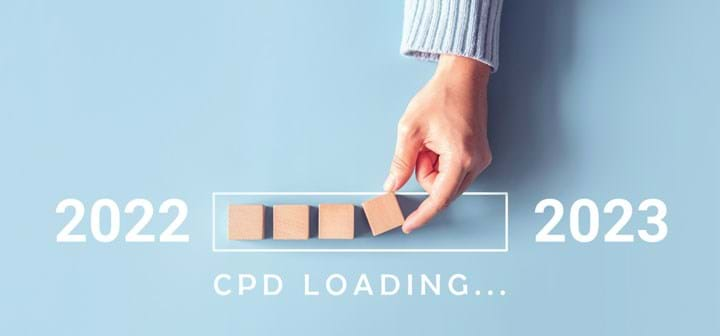Merry Christmas and a Happy New….CPD Cycle!
Peter Coutts asks: what’s the purpose of CPD in the later stages of your career?
AS WE wave 2022 goodbye and look towards 2023, wherever we are and whatever we’ve been doing, the end of the year is always an opportunity to reflect on the past year and look to the future. In early January, we will all be familiar with upbeat schtick filling column inches in the media on how to keep those new year’s resolutions that we already feel like we’ve kicked into the long grass. It’s probably a leap of faith to imagine that this is the time when we should be considering our continuous professional development (CPD), but when better to start?
As many of you will know, 2021 was the first year that responding to an IChemE CPD request became mandatory. IChemE brought its bylaws up to date with the requirements set out by the Engineering Council, the Science Council and Society for the Environment. Failure to respond now means members lose their membership – although there are exemptions if you are fully retired and do not hold CSci, CEnv or ESOS registrations. This fact will have been of concern to many, as it was to me, when I realised this change was coming. In terms of encouragement, this could seem more “stick” than “carrot”, and many of us, especially those later in their careers, may have had the gnawing doubt that their CPD was up to scratch.
My own role as an IChemE volunteer CPD assessor, and now lead assessor, started with just such questions. I saw the opportunity to volunteer as an assessor as the best way to find out what CPD was all about. My journey in this respect has given me a unique opportunity to get a better understanding in this area, and form my own view on what this means to our members.

Response
In 2022, the CPD Team at IChemE had a great response from those who were asked to submit their CPD, yet a good number of replies and submissions from some more senior members are saying things like “CPD is for the newly graduated, those in the early stages of their career, not me!”
So, is it true that once you reach a level of seniority in your career, or when you are close to retirement, continuing your professional development should just stop? Not according to our regulatory bodies.
Unfortunately, if you try Googling CPD in retirement or related searches, the majority of the information that comes back is how to plan your pension
The Engineering Council has asked that IChemE does not remove members from the audit based on age, rank or retirement. This is because many of our members continue to do some sort of professional activity long into retirement, and it would be discriminatory to exclude anyone based on age or work status.
Unfortunately, if you try Googling “CPD in retirement” or related searches, the majority of the information that comes back is how to plan your pension. So, what does CPD look like in the later stages of one’s career and perhaps heading to retirement?

Recent Editions
Catch up on the latest news, views and jobs from The Chemical Engineer. Below are the four latest issues. View a wider selection of the archive from within the Magazine section of this site.




